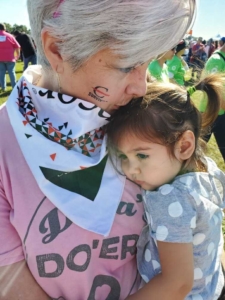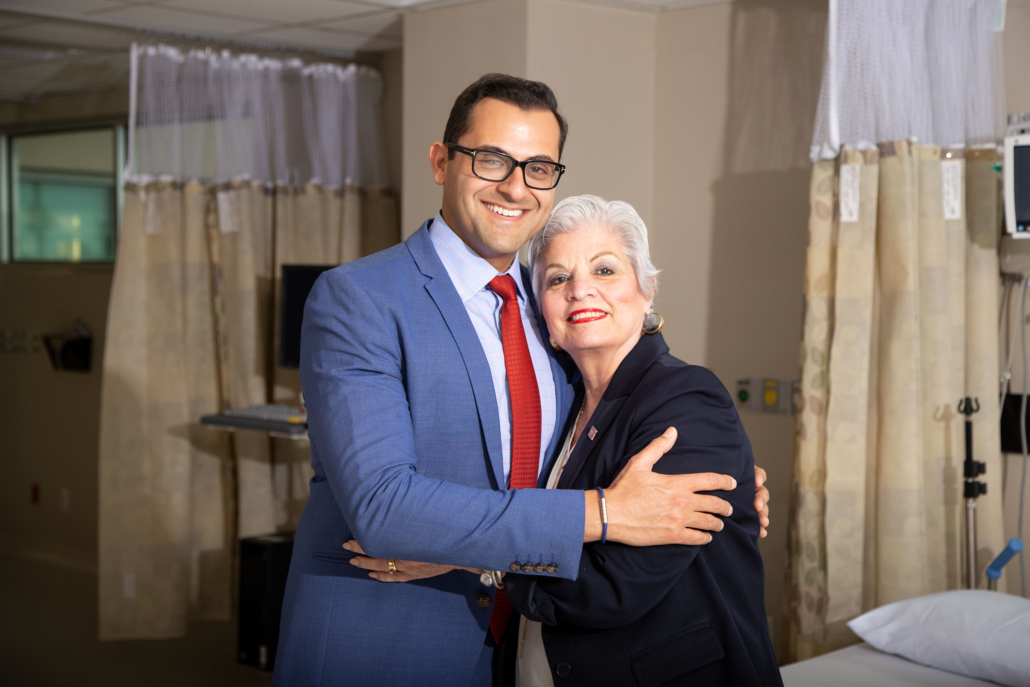Stroke can present itself in sometimes unexpected ways. For Dora Brown, a 72-year-old retired bank executive in McAllen, Texas, it started with blurred vision.
“I remember just trying to clear my eyes,” she said. “I thought, ‘I really need to get my eyes checked!’”
Unfortunately, Dora’s double vision was a sign of a severe stroke. Soon she realized that her legs were heavy and uncooperative, and she had trouble moving her arms. She knew something was wrong.

It was the morning of August 17, 2019. She had gone to dinner the evening before like she often did and had felt normal. There were no signs that a stroke was on her horizon.
But just as her husband, Joe, was leaving for a golf game with friends, Dora had trouble reaching the bathroom.
“We had just canceled our landline service the week before,” she said. “It took a lot for me to get downstairs to where my cell phone was charging, but I made it eventually. I knew I had to get in touch with my husband.”
When she reached Joe, who uncharacteristically had left his phone powered on despite being on the golf course, her voice was unintelligible. Joe wasted no time calling 911 and then rushing home himself to see what was wrong with Dora. He beat the emergency responders by just a few minutes.
“The last thing I remember was seeing my husband and the ambulance team walk into my house,” she said. “Then I passed out.”
Joe directed EMTs to take Dora nearby to Rio Grande Regional, where she previously served on the Board of Directors. Medical staff did x-rays, saw the clot and knew that Dora needed specialized care. They transferred her to McAllen Medical Center where Dr. Ameer Hassan and his team were waiting to perform neurointerventional stroke surgery known as thrombectomy.
“Even though Rio Grande Regional is my ‘go-to’ hospital, I’m so grateful that their doctors saw how serious my stroke was and decided to transfer me to McAllen Medical,” said Dora. “Having a team that knew how to treat my stroke and had the equipment to do so probably saved my life.”
Dora spent three days in the hospital — all in the ICU — to ensure she didn’t experience another stroke. Otherwise, she is confident she could have gone home the next day. But there was a silver lining to sticking around; she was able to meet and thank Dr. Hassan.
“He told me that they were able to go in and get the clot,” she said. “He described it using two fingers to show how they scraped the clot, and fortunately the whole thing came out. You can tell by the way he talks about stroke that he loves this job. He is passionate about saving lives.”

Dora’s recovery was swift. She impressed all of the therapists assigned to help her walk, talk and be herself again. Today, she is enjoying many of the same things she did prior to her stroke. She visits her daughter and granddaughter in Houston, has traveled internationally and plans celebrations; she basically picked up right where she left off.
She and Dr. Hassan are still in touch. He asks her to speak with patients’ groups or as part of seminars. She calls herself his biggest fan.
“I love Dr. Hassan,” she said. “I am forever indebted to him and McAllen Medical, and I take every opportunity I can to make sure other people know about what they did that day to save me.”



